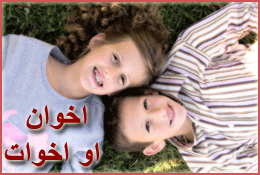-
Ooops...mumtaza*
-
شكرا لدرس جميل
-
انا عندي اخ واحد فقط
وانتم؟ هل عندكم اخوان او اخوات؟ -
السلام عليكم.هل عندكم و هل لديكم نفص المعنة.
Hello Ehab!Do indaka and ladaika have the same meening.where we use indaka and where we use ladaika?
Thank you. -
Nice question Jamil;
3endaka and ladayka both mean (you have), but, if you have the thing with you now and you carry it, then using ladayka would be better i.e. hal ladayka qalam? ( do you have pen?). On the other side, use 3endaka when you have something but not with you now or you carry it, i.e. hal 3endaka sayyarah? (Do you have car?).
If you are using simple Arabic, it would not matter which one you use, but if you are writing article for newspapers or formal matters, then it is better to be specific.
One last thing,, to say (same meaning) in Arabic, say (nafs alma3na) which is written as (نفس المعنى),, alright.. that is the reason behind using numbers sometimes instead of letters :)
Hope it helps.
Ta7eyyati
-
Leila-
Thanks! I'm not sure if I articulated it well, but I hope everyone was able to figure out what I meant.
A small correction:
شكرا على درس جميل
What you said means "thank you to..."
لي أخ واحد لا يسكن في نفس المدينة مثلي وأختين أصغر لكل
Ehab- About your explaination with 3andak vs. ladayk. So basically you're saying for the most part they're interchangeable, except for if you possibly have something at the moment(3andii) vs. in general( laday)- am I right? So how about in the broader context of non-human objects vs. humans? Is one more preferrable than the other? -
Thanks for your correction Afreeqiya.
I was trying to decide whether i should use ل or على and in the end I went for ل! Bad choice.
A7'/u7't is the more general term for brothers or sisters right? So it could be real or step or it could be brothers/sisters in religion etc.
If you wanted to be more specific then you would say shaqeeq/shaqeeqah, is that right?
How about half brothers/sisters (i.e. they share the same mum but diff dad or they share the same dad but diff mum)? I'm guessing that shaqeeq/shaqeeqah would be used to describe them too. -
Hey Leila,
Yeah, that's what I was explaining above when I said the latter could be used to refer to "step". Shaqiiq/a means specifically a blood relative and Akh/Ukht are usually not (more general), yet is more commonly used. -
'Thanks for the lesson.'
How do I say the above in Arabic? That's a phrase I'm going to use often.
A query- what's the root from which muz3ej is derived. Can we use it to talk about annoying people (behind their backs of course;-P)?
Shokran! -
Say "شكراً على الدرس" abhishek..
Muz3ej is derived from "az3aja" which is to annoy someone. hope you don't like to annoy people :)
-
hello ı m a woman so how can ı say these two sentences accordıng to my gender ın arabıc?
"I M only chıld. ı m the oldest among them." -
sho raw3a heik, ya3ni bt3allem kteer wallah...halla2 ana saakin bi amreeka wasaa3a wa7deh noss kunt adross min saa3a 7edaashr wa ma2darsh awgif hahahah how do you say "this is so addicting?"
motshakkir as7aab -
ha ha ha,, you should go to bed and come back in the morning.. And by the way,(this is so addicting) means (haad'aa idmaan).
-
Are بعض الاحان and احيانا equivalents?
-
@psibear, yes they can be used interchangeably. They mean sometimes
-
عندي شقيق وحيد ولكن كان عندي شقيقين. احب شقيقيني
Lower Intermediate - Brothers or sisters
| February 5th, 2008 | 1 comment |
Why is it that we always want what we don't have? You find individuals with curly hair try all the products under the sun to make their hair straight, while those with straight hair use umpteen electronic hair utensils so that their hair becomes curly. The situation is no different when it comes to siblings. An only child wishes they had the company of a brother or sister, while those with brothers and sisters sometimes wish they were an only child. This dialogue recognises that both cases have their ups and downs. Listen to the podcast and learn how to describe your family in Arabic.
 |
 MP3 Download MP3 Download
 PDF Transcript PDF Transcript
|
 Audio Transcript Audio Transcript Exercise Exercise |
|
| Basic | Premium | |
|---|---|---|
Join the Discussion

Random Word
ملاهي |
|

Advertisement




There's a difference between "shaqiiq/a" and "ukht"/"akh". The previous refers to blood relation, while the latter is step-. However, most grammar books don't make this distinction, so I'm assuming it's more prevalent to just say "akh". Whatever the case may be, this is probably غلطة شائعة- a common error.